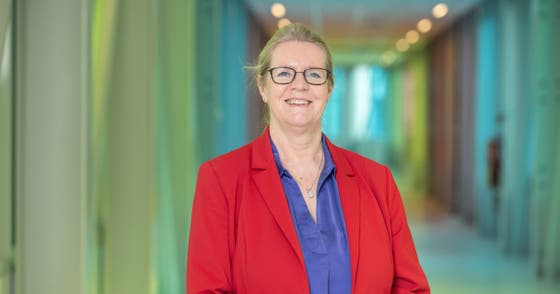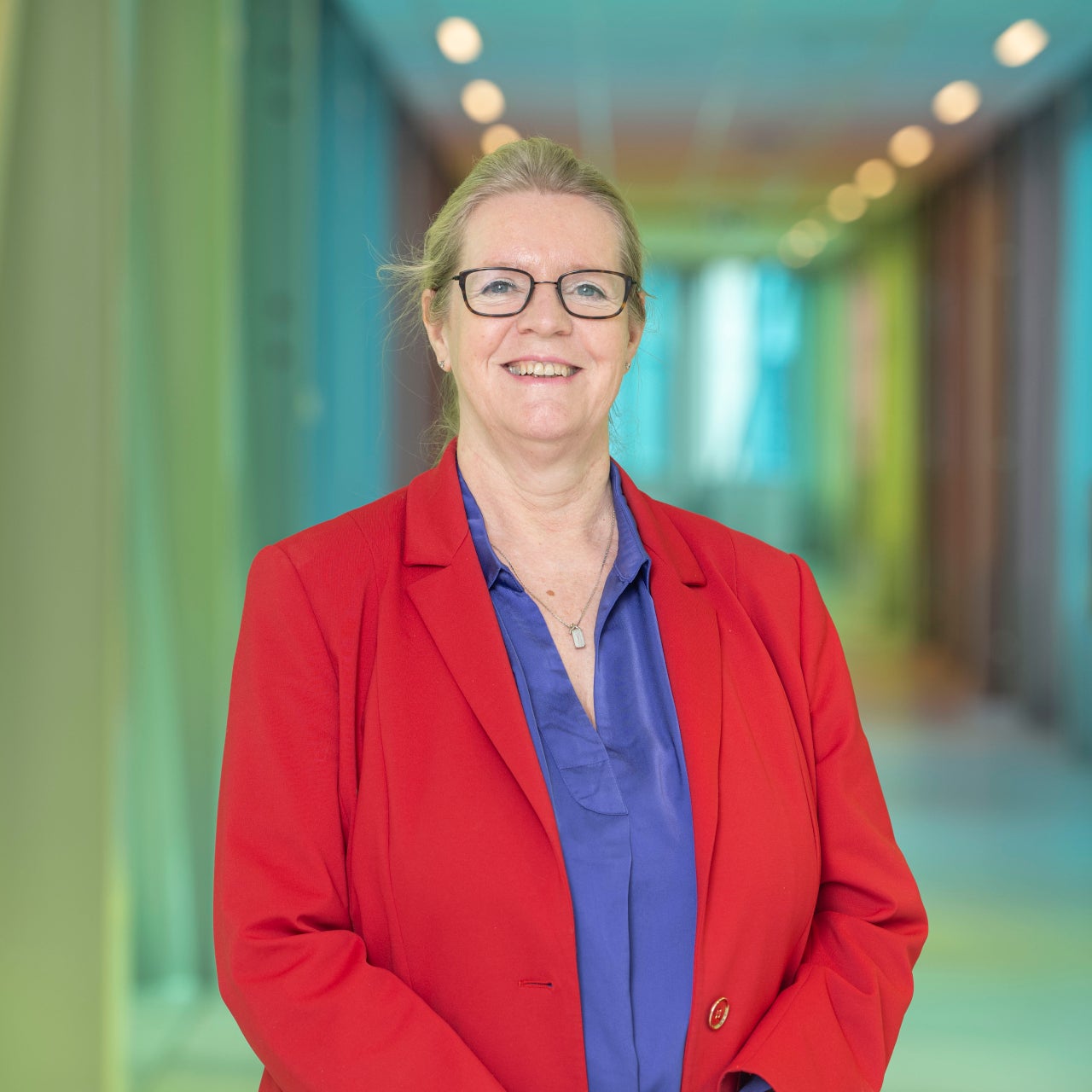Lieve Tytgat appointed professor of biomarkers

How can we better monitor the disease progression of children with solid tumors? That is the question Lieve Tytgat focuses on. As of 1 January 2024, she has been appointed professor of biomarkers in pediatric solid tumors at UMC Utrecht. She primarily focuses on the further development of blood and urine tests to better detect and monitor childhood cancer. "If necessary and possible, we can then adjust the treatment more quickly."
Children who are being treated for cancer receive regular scans. For example, to keep an eye on how the tumor responds to treatment. Or to determine whether the child is eligible for a new, targeted therapy. But such scans are not always accurate enough: a very small tumor can be missed, while it may indeed indicate that the cancer has started to grow again.
Searching for traces
"We therefore need better ways to detect the presence of cancer cells," says Lieve, who works as a pediatric oncologist and research group leader at the Princess Máxima Center. "To do this, we can use the traces that a tumor leaves behind in the body. We know that individual cancer cells and pieces of genetic material from the tumor end up in the blood or urine."
In her research and as part of her professorship, Lieve wants to find out which of these traces are unique to different types of childhood cancer. These can then be used to develop a specific blood or urine test. This allows doctors to identify the cancer more quickly, monitor it better and adjust the child’s treatment plan.
Blood or urine tests – or ‘liquid biopsies’ – are one of the total set of tools that can be used to find so-called 'biological markers', or 'biomarkers'. These are, simply put, substances that indicate someone may be suffering from a certain illness. By defining more biomarkers, diseases can be detected more quickly. Especially when those biomarkers are combined with other ways of tracing and tracking the disease.
"As a doctor, I always make sure that I get an overall picture of a child in the consulting room," says Lieve. "I know that test results may contradict each other, or are sometimes inconclusive. That's why I'm always looking at other markers in my research as well, for example with the help of MIBG scans (scans to detect neuroendocrine tumors – ed.). How can we learn more about the patient's illness from all these different measurements? And how can we accelerate the translation of research innovations to the clinic?"
With one foot in both worlds
Lieve leads a research group, but also works in daily hospital practice. She is a pediatric oncologist specializing in solid tumors. These are malignant growths developing in an organ or tissue, as opposed to cancer in the blood or lymphatic fluid. Especially the rarer solid tumors are often difficult to find and track. Such as neuroblastomas, which grow in the nerve tissue outside the brain. Or rhabdomyosarcomas, which are located in the muscles.
Lieve believes it is very important to continue combining both working with patients and doing fundamental research. "As more and more becomes technically possible, there is a risk that the gap between healthcare and fundamental research will widen," Lieve notes. "It's important to have clinical researchers who, like me, have one foot in both worlds on a daily basis. For example, if you want to properly apply the latest insights into genetic abnormalities in childhood cancer, you must also be able to link that knowledge to differences on scans and other measurements in the clinic. Especially when it comes to a small group of children with whom the treatment works much better or much worse. By unravelling such differences, we can learn a lot and come up with better treatments."
International cooperation
In order to improve treatments, it is also important to collaborate with other countries. "On a scientific level, I work within an international framework. This is especially important for rare diseases and for all forms of childhood cancer," says Lieve. "Thanks to international collaboration, I will be able to research larger groups of children more quickly. In this way, I also hope to bring certain biomarkers more quickly to daily healthcare practice, so that children will benefit directly from them."
Societal milestone
The professorship also means a lot to Lieve on a social level. "It is a real milestone for me personally; I am very proud of this appointment. As a research group leader, I supervise a large number of young researchers during their PhDs. I am very happy that, as a professor, I can now complete that journey with them to defend their thesis. In addition, I think it is important – also for all young men and women who are currently working as PhD students or postdoctoral researchers – to contribute to increasing the number of female professors."

